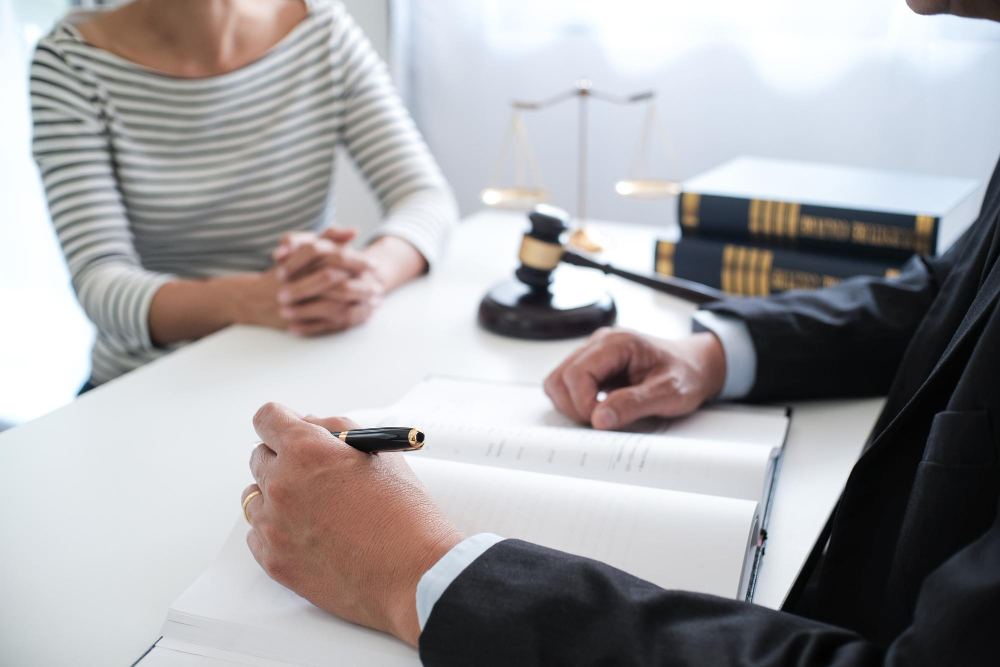
Choosing the appropriate legal counsel may have a significant effect on how a case turns out. It is critical to comprehend important safety precautions when handling complicated litigation or getting regular legal guidance. With the help of this advice, you will be able to select a lawyer who will provide outstanding outcomes by making well-informed judgments.
- Recognizing Your Needs in Legal Matters
Establish your legal needs precisely before starting the lawyer search. Lawyers have a wide range of specializations, including family law, business law, personal injury, and criminal defence. Finding a lawyer with the right experience for your case is essential to getting the best outcomes. For example, a business needs a corporate lawyer, but a divorce requires a family law specialist.
You can increase the probability of a favourable result by matching your legal requirements with the area of expertise of the lawyer.
- Assessing the Past Practice of a Lawyer
Evaluating a lawyer’s practice history is one of the most important safety factors to take into account. This entails assessing their success rate, diversity of caseload, and years of experience. To make your search for capable local lawyers more efficient, several legal service marketplaces provide comprehensive lawyer profiles that include prior case experiences.
If your case involves a personal injury, for instance, you want to find out if the lawyer has previously handled cases of a similar kind with success. The track record of a lawyer can provide you with confidence in your decision by revealing information about their capacity to obtain good outcomes.
- Investigating a Lawyer’s Reputation
An important consideration in the legal profession is investigating a lawyer’s reputation. You may benefit from the fact that a well-regarded lawyer is more likely to be respected by their colleagues and the legal community at large. You may look into the reputation of a lawyer by checking with local bar associations, asking around for recommendations from reliable people, and reading internet reviews.
Assume you are selecting a lawyer for a criminal defence case. Having established ties with local judges and prosecutors, a lawyer with a solid record for successfully defending clients in cases comparable to theirs may be able to negotiate better plea agreements or favourable trial results.
- Choosing a Lawyer Who Can Meet Your Needs
Choosing a lawyer who can meet your needs is just as important as considering experience and price. This entails taking into account elements like their communication style, availability, and capacity to make you feel at ease and understood.
For example, you may want a lawyer who is not just competent but also sympathetic and sensitive if you are going through a difficult legal struggle. Stress may increase if your lawyer is hard to get a hold of or doesn’t explain legal jargon in a way that makes sense to you. However, the procedure might go more smoothly and reassuringly if the lawyer listens to you and takes the time to address your concerns.
- Locating Lawyers in Your Area Who Are Available
When selecting a lawyer, finding a lawyer who is available in your area is still another important factor. Working with a licensed and accessible local legal professional is often safer and more convenient. Local legal professionals might have a big advantage in your case since they are more acquainted with the state laws, local court systems, and the legal community.
If you are embroiled in a legal conflict inside Toronto, for instance, selecting a Toronto lawyer over one from another location would probably provide you with more insight into the local legal scene. Additionally, they could have developed connections with local court staff that could help your case.
- Evaluating Communication and Accessibility
The accessibility of a lawyer is yet another crucial safety factor. Choosing a lawyer with the right expertise is essential since legal concerns frequently require making judgments on time. Inquire about a potential lawyer’s availability and preferred means of contact before employing them.
For instance, some lawyers could be more approachable via phone or even text, while others would prefer email. By ensuring that your communication styles mesh, you can avoid misunderstandings and stay up-to-date on the status of your case at all times.
- Examining Any Possible Conflicts of Interest
It’s critical to confirm that your lawyer has no conflicts of interest that can jeopardize your legal position. This might entail having a personal investment in the result or representing a party with competing interests. Consult with the lawyer about any possible conflicts before hiring, and make sure they can represent you impartially.
Even though they are highly recommended, it might not be in your best interest to proceed with a lawyer who has previously represented the other side in a commercial dispute. Being open and honest about possible conflicts of interest guarantees that your lawyer will only concentrate on getting the best result for you.
- Understanding the Cost of Legal Services
When choosing a lawyer, you cannot neglect the importance of the cost of legal services, as this plays a major role in your decision. Generally, many lawyers prefer hourly billing, which can range from $300 to $600 or more, depending on different factors, including their expertise, the complexity of the case, specialization, the location, the lawyer’s reputation, and the urgency of the case. Always discuss the cost upfront, so you don’t end up with surprises when the time comes. Speak about hidden or potential costs as well.
When choosing a lawyer, it’s essential to go through careful consideration. Follow these steps for a safe choice. Need more legal help and instant answers to your questions? Don’t forget to subscribe to LawVo.
Back to blogs